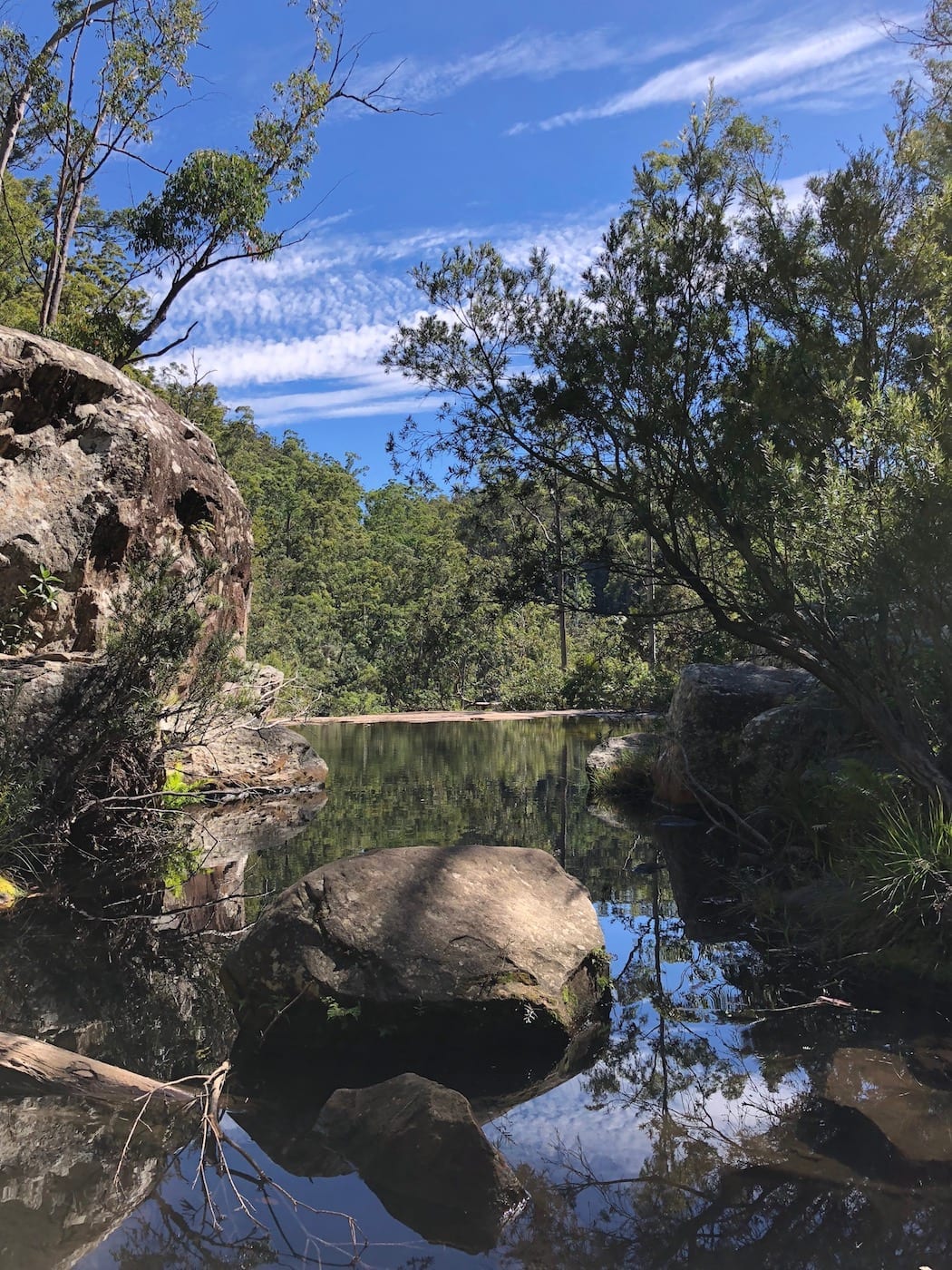Note: This article contains an affiliate link to Camera House. If you click through and make a purchase, we earn a small commission at no extra cost to you.
If you’re looking for somewhere unusual, Blackdown Tableland National Park should probably be on your list. Why? Well as you’ll see, this park really is quite different.
Have you ever been to a National Park where there’s no grazing animals? No? Neither had we. More on this soon.
But first, where is Blackdown Tableland National Park and what’s special about it?
Rising Out of the Plains
Travelling West towards Blackwater on the Capricorn Highway in Central Queensland, you’ll see the Dawson Ranges to your left in the distance. The country around here is flat, so the ranges stand out like a sore thumb.
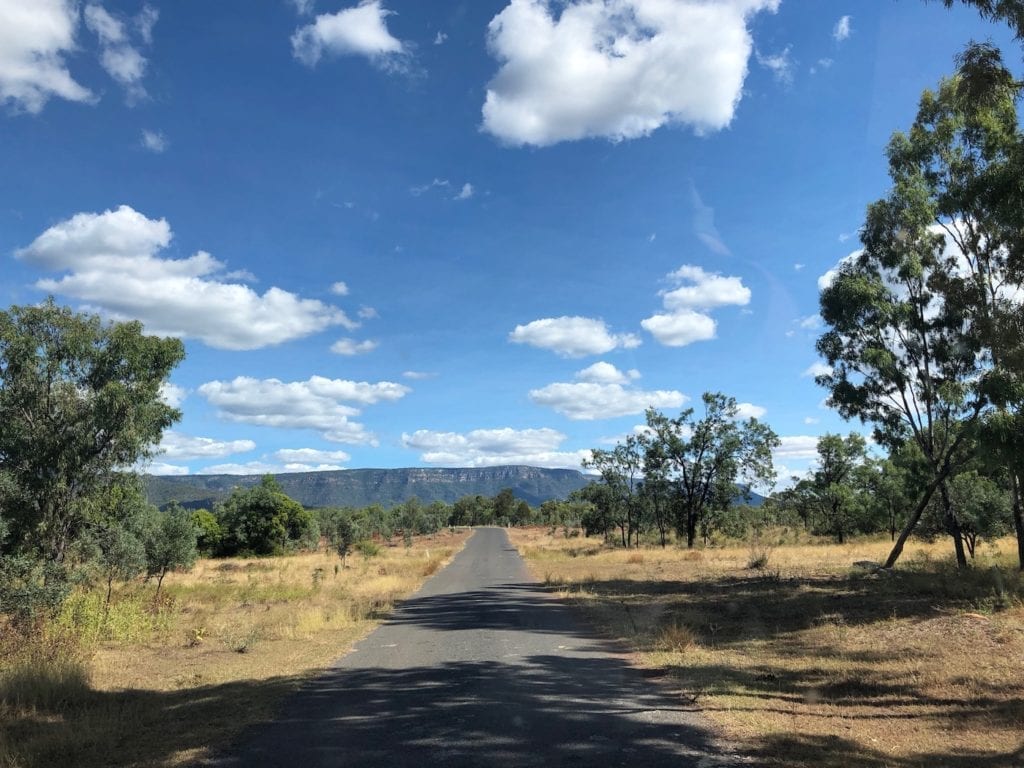
For an exact location of Blackdown Tableland National Park, go to the map at the end of this article.
And up there somewhere in the ranges, is the National Park.
Turning left off the highway, you’ll cross a wide plain, cattle country. Then you swing around and drive straight towards the mountains. Abruptly you start to climb.
Up and up you go, hugging the side of a steep mountain. This road was built by the Forestry Department in 1971. They were after the tall straight stringybark trees growing on the tableland.
This road is full of false peaks. Just when you think you can’t possibly go any higher, you’ll round a bend and the road keeps going up. Fortunately it’s tarred to the top.
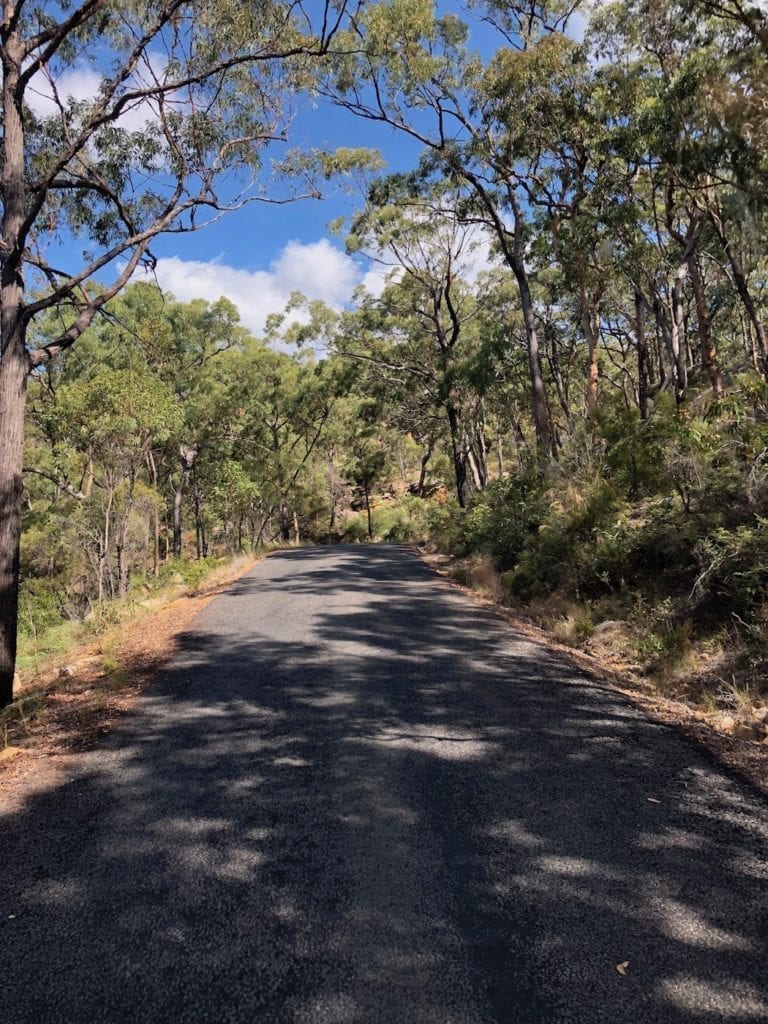
You reach the information booth and from here on the road’s dirt. It’s pretty rough in places, so take your time.
As you climb ever higher, the climate changes. You’re off the hot, dusty plains and into a cooler, gentler climate. Huge stringybarks provide shade from the heat and a cooling breeze filters through the trees. Palms and ferns find refuge in the more protected gullies and fresh, running water is a welcome sight.
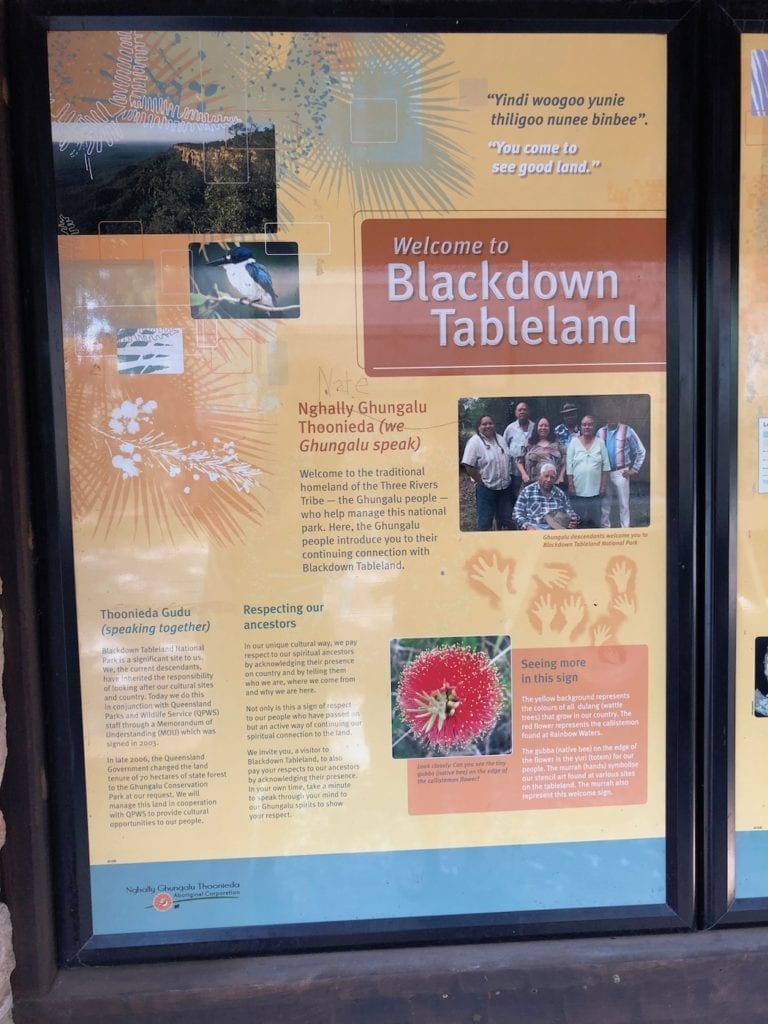
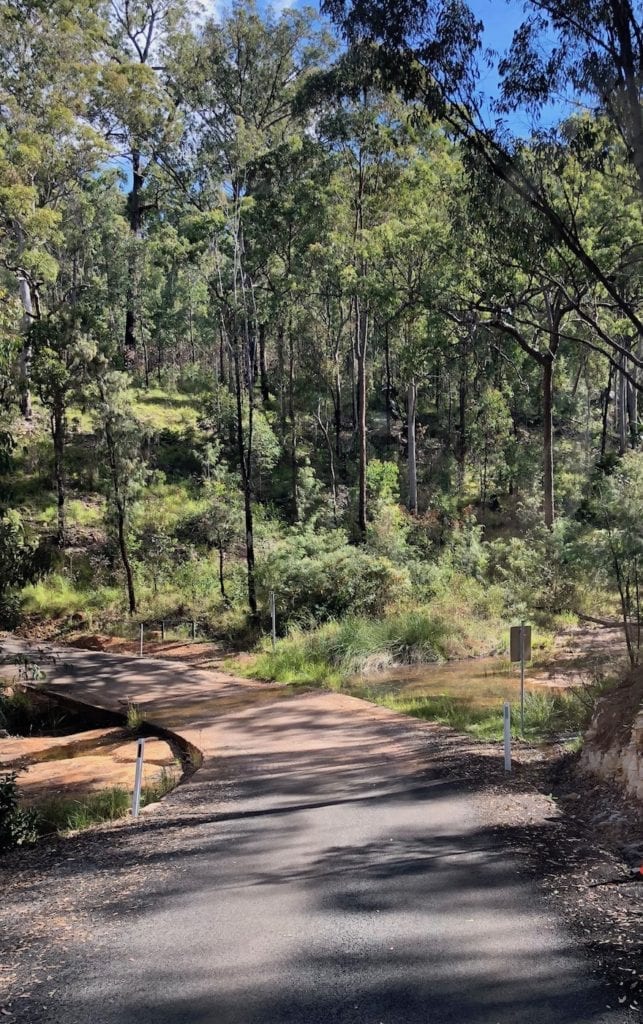
Camping at Blackdown Tableland
Munall campground is excellent. Sites are private and some are really quite enormous. Each has its own firepit, almost a necessity when the sun goes down.
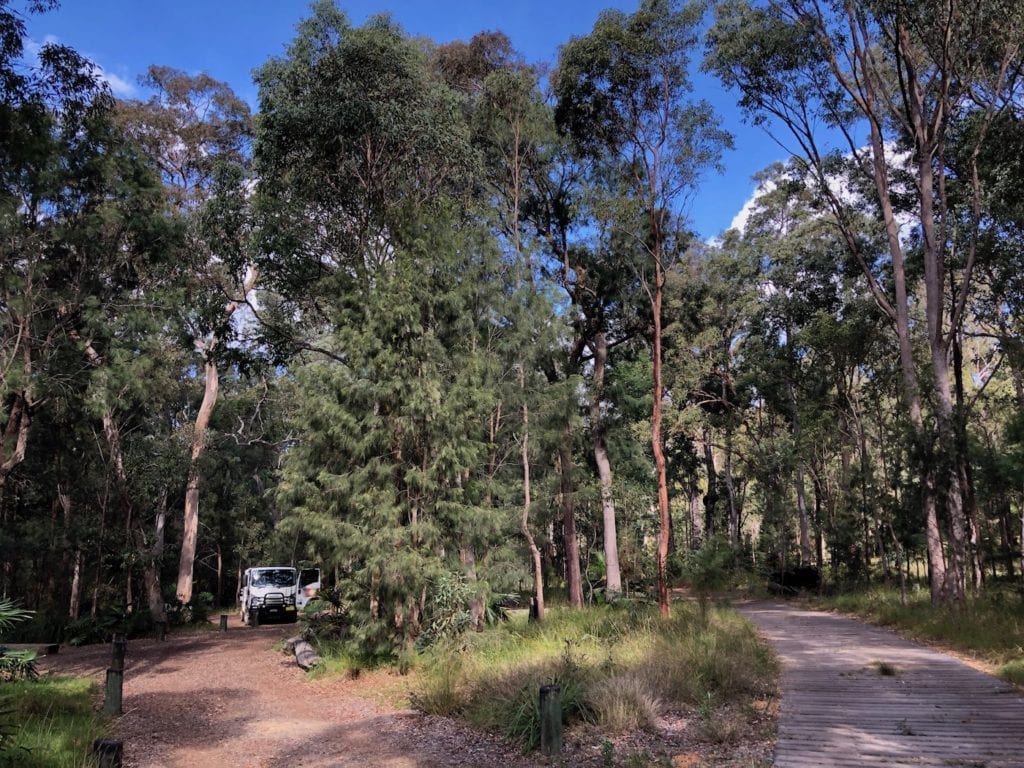
Make sure you book online before you get there. Queensland National Parks’ ridiculous online booking system means you can’t just turn up and pay. It’s a long drive back out if you forget to book.
There’s drop toilets, but no other facilities. You’ll need to be self-sufficient, including water.
What Can You Do There?
Blackdown Tableland NP has three exceptional good walks (or four if you count the short walk to the lookout, opposite the Information Booth). They are:
- The Goon Goon Dina (Lightning Lizard) Walk. This is a loop starting and finishing at the campground. For more information on the Goon Goon Dina Walk, go here.
- The Mook Mook (Owl) Walk heads east from the campground and ends at a spectacular lookout. For more information on the Mook Mook Walk, go here.
- The Gudda Gumoo (Rainbow Waters) Walk is about 8km South of the campground.This is a more difficult walk, ending at the base of an incredibly beautiful waterfall. For more information on the Gudda Gumoo Walk, go here.
Of course, relaxing around the campground is another alternative. The bird life is prolific. The kingfishers are hilarious. They stand on the road, gazing down at the ground with their heads cocked to one side. Then suddenly they’ll attack the ground, using their beaks like jackhammers. Most times they triumphantly swallow a witchety grub, a reward for their efforts.
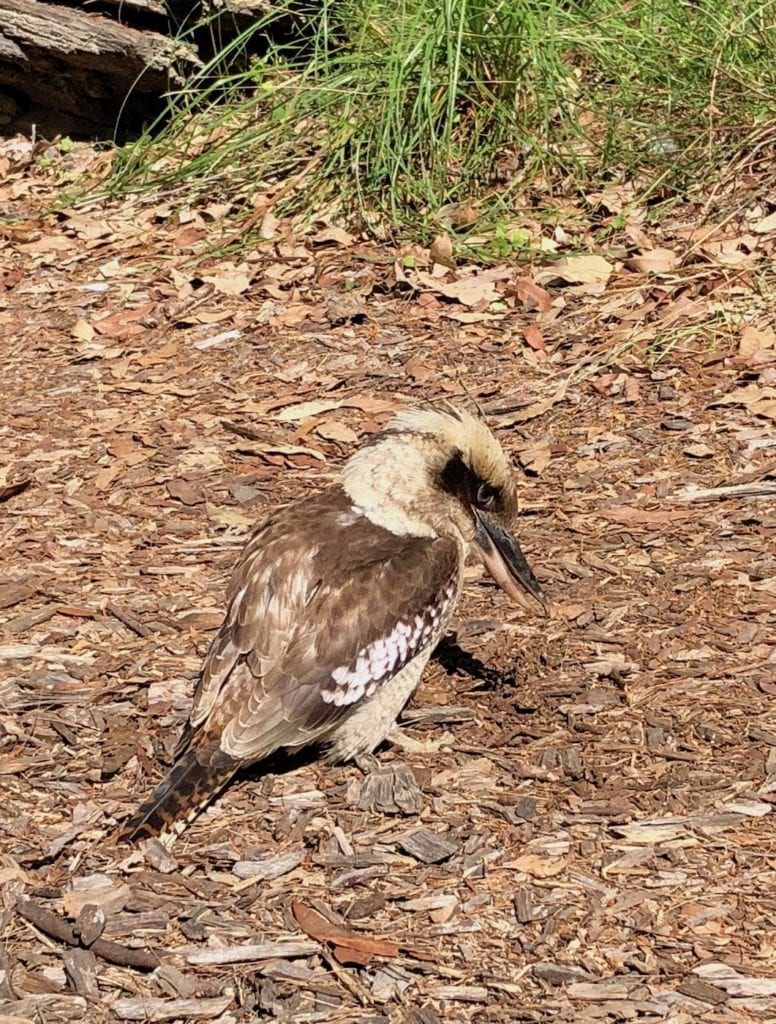
Watch out for the currawongs. They’re fairly tame, clearly people feed them despite the warning signs not to. If you leave any food out, they’ll swoop down and take it before you’ve had a chance to react.
There’s also a 4WD loop road you can take. We didn’t do this trip… we’ll save that one for our next visit!
Where are the Grazing Animals?
Since the tableland was first discovered by settlers, many people have tried to graze cattle here. The country appears to be perfectly suited for this. There’s plentiful native grasses and the climate is perfect for cattle.
However, all of these efforts failed. The cattle would lose condition and often develop rickets. This is caused by them eating a particular type of palm and is a horrible illness where the cattle lose control of their hind quarter.
It turns out the tableland soil has severe nutrient deficiencies, rendering the grasses unsuitable for grazing animals.
After a while, you really notice the absence of any grazing animals. There’s no kangaroos or wallabies. And after dark when you’d normally hear roos scruffling around or snorting at one other, it’s completely silent. It’s really quite strange.
So Blackdown Tableland is the domain of birds and reptiles.
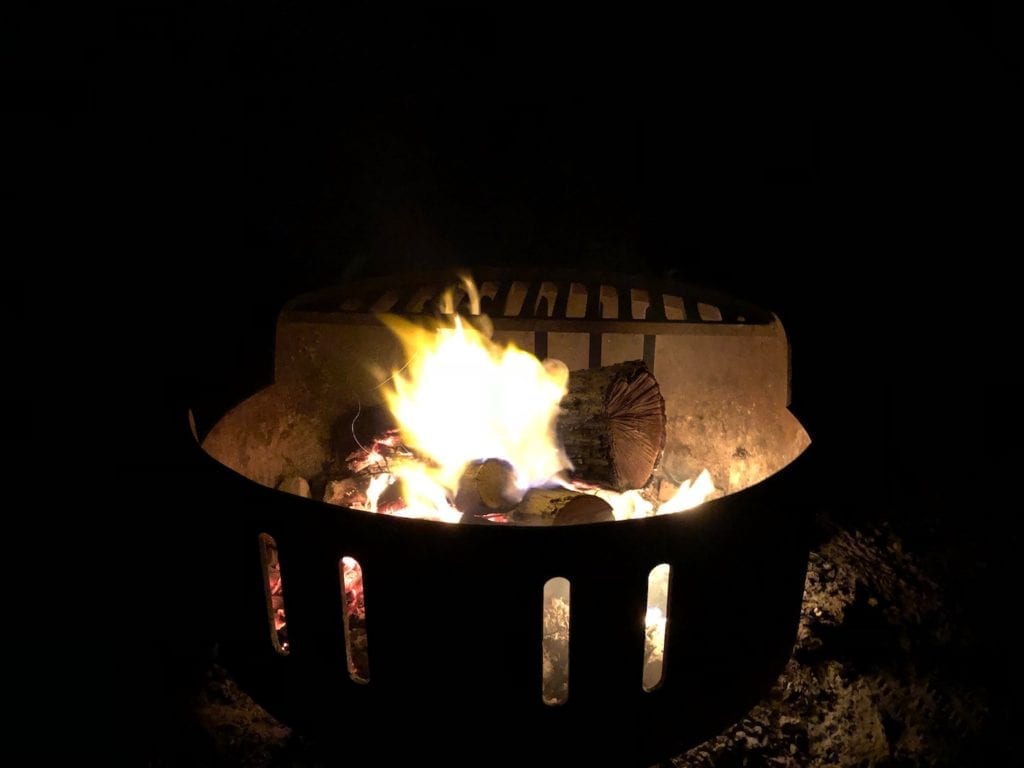
In Summary
Blackdown Tableland National Park is little-known and off the radar of most travellers. However the contrast between the tableland country and the surrounding plains is stark.
Take all three walks to soak in the beauty of this place. I guarantee you won’t want to leave.
Blackdown Tableland is on Ghungalu Country.
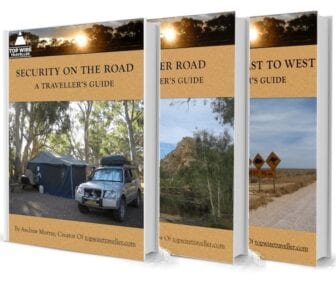
Get your Traveller’s Guides
… and a whole lot more at our FREE RESOURCES Page!
Any questions or comments? Go to the Comments below or join us on Pinterest, Facebook or YouTube.
Any errors or omissions are mine alone.
Looking for more great articles on QLD National Parks? Then go here.

